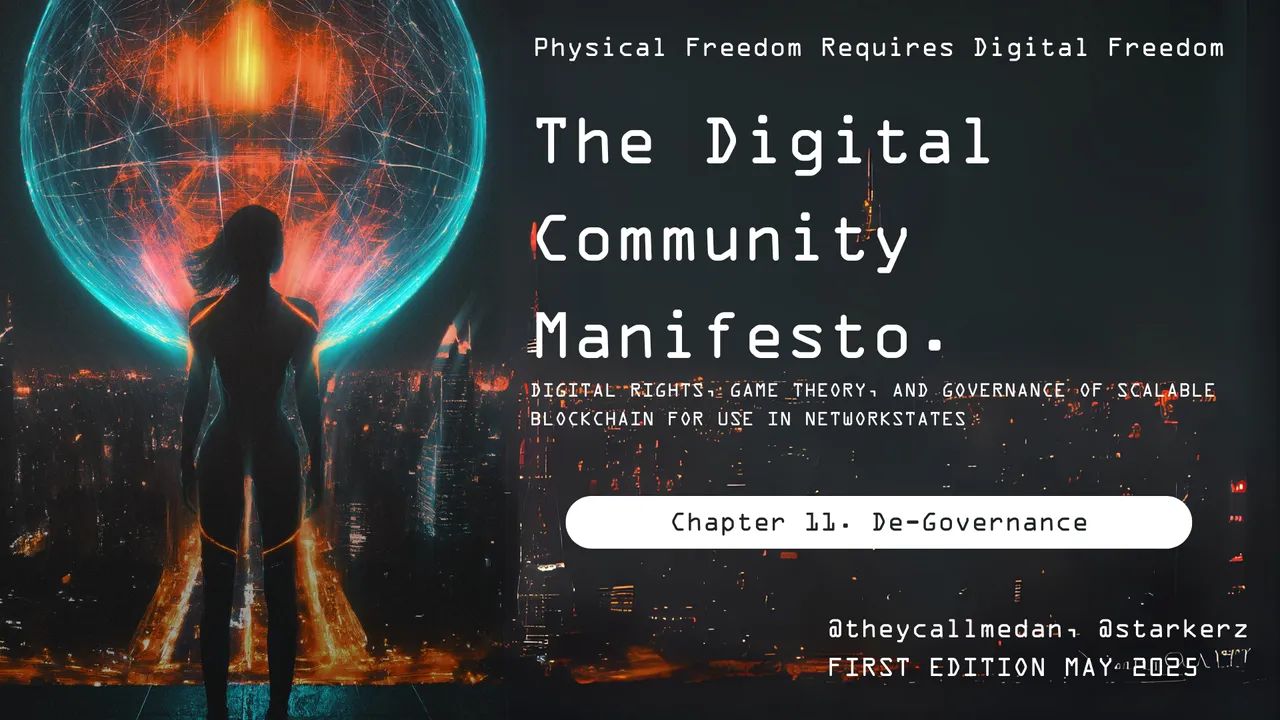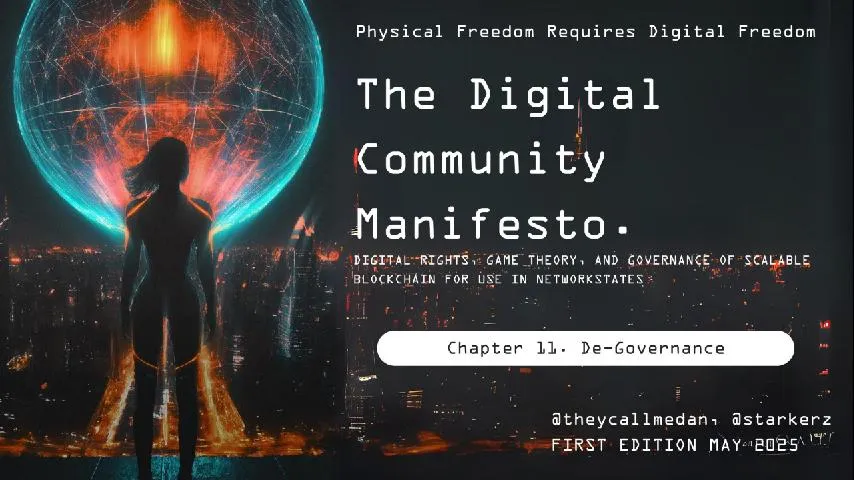Securing Digital Rights for Communities (Game Theory and Governance of Scalable Blockchains for Use in Digital Network States)
Chapter 11. De-Governance
Where Consensus Meets Human Judgment

Introduction
Blockchains inevitably require a consensus mechanism some form of governance to decide how data is validated, how upgrades occur, and who ultimately exerts control. Yet many projects misunderstand governance, defaulting to simplistic models that invite centralisation. This chapter examines three major paradigms Proof-of-Work, Proof-of-Stake, and Delegated Proof-of-Stake while highlighting how true decentralisation for communities and social systems requires more refined “parameterised” voting systems. We then show why neutral, ownerless blockchains must avoid founders, VC's, and pre-mines, and how community-driven governance can act as a counterbalance against takeover attempts and regulatory threats.
▶️ 3Speak
